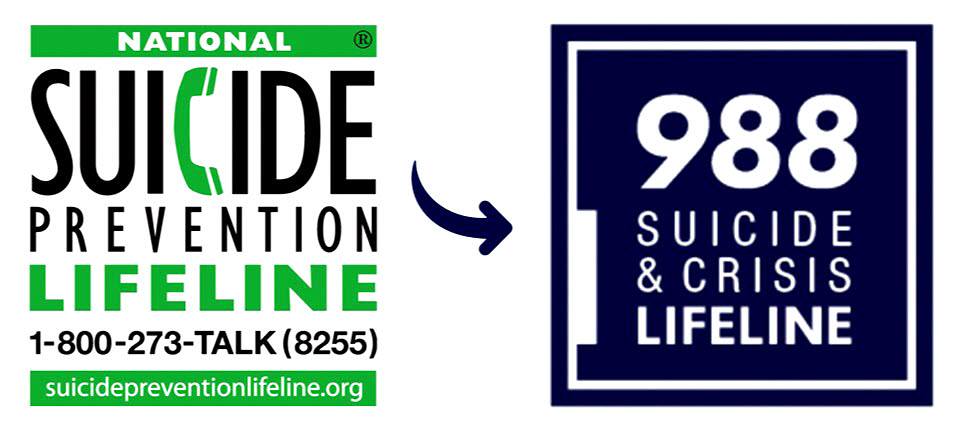By Joseph Pratt
Last week, Portsmouth Daily Times ran part-one of a two-part series on #suiciderates in #America, based on monthly trends. We interviewed Belinda Rose, of Compass Community Health, and discussed #suicide statistics per season and explained many of the reasons trends spike in spring, but also bump in January.
Part two will highlight what to look for in someone considering #suicide, risk factors that impact #suicide in people, and resources for people considering harming themselves.
#Suicide is a serious epidemic in the #UnitedStates, where, according to the #CDC, 45,979 people died by #suicide in 2020, which is one death every 11 minutes. That puts #suicide the tenth leading cause of death in the #UnitedStates.
While the #suicide rate is high, the rate of people who considered #suicide is far greater. With an expected 12.2 million seriously considering it, 3.2 million making a plan, and 1.2 million making an attempt.
In addition, the #CDC reports that there are four hospitalizations for every #suicideattempt, eight emergency room visits related to #suicide, 27 self-reported #suicideattempts, and 275 people who considered #suicide.
#Men are also four times more likely to die by #suicide.
There are multiple factors which can make an individual more at risk for #suicidalideation and attempted #suicide. Individual factors, relationships, as well as community and societal factors can all play a part in increasing an individual’s risk for suicidal #behaviors.
“Individual factors may include previous #suicideattempts,” Rose said. “Some of those include history of #depression and other #mentalillnesses, serious illness such as chronic pain, criminal/legal problems, job/#financial problems or loss, impulsive or aggressive tendencies, #substanceuse, current or prior history of #adversechildhoodexperiences, sense of #hopelessness, violence victimization and/or perpetration as well as others.”
Rose also explained that harmful or hurtful experiences in relationships contributing to #suicidalbehaviors can include being #bullied, family/loved one’s history of #suicide, loss of relationships, high conflict or violent relationships, #socialisolation, among others.
“Community and societal factors include lack of access to healthcare, #suicide clusters in the community, stress of acculturation (the stress that emerges from conflicts when individuals must adjust to a new culture of the host society), community violence, multigenerational #traumas experienced by a specific cultural, #racial or #ethnic group, being discriminated against, #stigma associated with help-seeking and #mentalillness, easy access to lethal means of #suicide among people at risk, unsafe media portrayals of #suicide and many others,” Rose explained.
While the risk for #suicide remains high in spring and in months with a bump in cases, such as January, Rose explained that there are warning signs that you can watch out for.
#James Donaldson notes:
Welcome to the “next chapter” of my life… being a voice and an advocate for #mentalhealthawarenessandsuicideprevention, especially pertaining to our younger generation of students and student-athletes.
Getting men to speak up and reach out for help and assistance is one of my passions. Us men need to not suffer in silence or drown our sorrows in alcohol, hang out at bars and strip joints, or get involved with drug use.
Having gone through a recent bout of #depression and #suicidalthoughts myself, I realize now, that I can make a huge difference in the lives of so many by sharing my story, and by sharing various resources I come across as I work in this space. #http://bit.ly/JamesMentalHealthArticle
Order your copy of James Donaldson’s latest book,
#CelebratingYourGiftofLife:
From The Verge of Suicide to a Life of Purpose and Joy
www.celebratingyourgiftoflife.com
“The most concerning warning sign leading up to #suicidalbehavior is when an individual exhibits new or changed #behavior especially if there has been a recent loss, painful event or life change. The person’s conversations may be laced with topics like killing themselves, having no reason to live, feeling hopeless, being a burden to others, feeling trapped, or living with unbearable pain,” Rose said. “Some #behavior changes may include an increase in use of #alcohol or #drugs, looking for a way to end their lives like searching online for methods, withdrawing from activities, isolating from family and friends, sleeping too much or too little, visiting or calling people to say goodbye, giving away prized possessions, aggression, or fatigue.”
Rose continued, explaining that someone contemplating #suicide may have mood changes such as #depression, #anxiety, loss of interest in activities they normally enjoy, irritability, humiliation or shame, agitation or anger. They may even exhibit a sudden improvement or seem relieved. At times, when a person is deeply depressed, they may be so overwhelmed with #depression they don’t have the energy to harm themselves but when they start to improve may be a time to feel concern because motivation and energy start to return. Studies suggest 33 percent of people suffering from Major #Depression continue to experience #suicidalthoughts after their #depression symptoms are in remission.
While there are many common causes behind #suicideideation, Rose explained that there are protective factors that can help a person caught in the trap of #suicide ideology.
“There are certain things which are protective against #suicidalbehavior. Individuals who have access to #mentalhealthcare and who are proactive regarding their own #mentalhealth are at a decreased risk because they have a support network available to them,” Rose said. “Other protective factors include feeling connected to family and community support, ability for problem-solving, having coping skills having limited access to lethal means, and/or having cultural and religious beliefs that encourage connecting and help-seeking, discourage #suicidalbehavior, or create a strong sense of purpose or self-esteem within the person.
The #healthcareprofessional urged that, if you are concerned about someone you fear may be contemplating #suicide, encourage them to seek help. There are several resources available which are free and are available at any time day or night.
Finally, Rose provided an extensive list of professional crisis contacts for anyone in need of assistance.
Some of these resources include The Crisis Center in Portsmouth, which serves Scioto, Lawrence and Adams counties. They offer a 24/7/365 crisis hotline as well as ongoing emotional support and residential services for individuals who are experiencing a crisis.





